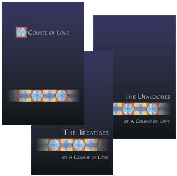 We entered a time, in 2001, that is reflected in our common psyche. I remember so clearly the feeling of cocooning that grasped the nation after 9/11. Protectionism followed the shock of terrorism striking “here.”
We entered a time, in 2001, that is reflected in our common psyche. I remember so clearly the feeling of cocooning that grasped the nation after 9/11. Protectionism followed the shock of terrorism striking “here.”
We became vulnerable. We began a shift to realizing that as a nation and personally, we couldn’t control everything. Even if we had enough money, which we soon realized we didn’t, we couldn’t solve all the world’s problems. Maybe we weren’t meant to…but how could we get out of it? How could we let events unfold around the world with their own timing and not feel at risk?
Parents confronted the same question at home. Doing everything for their children, trying to solve every problem, was resulting in entitlement and depression rather than happiness or confidence. It was building their own stress and the defensive walls that trying to control everything erects.
The Dalai Lama spoke to us in 2001, to Western nations, about our depression in his book on Ethics. He recognized that Buddhist teachings assume a healthy self-image that we didn’t have. He spoke of his surprise over this — that in wealthy nations people were less happy and less satisfied than in poor nations.
It was as if our secret began to leak out: we weren’t invulnerable, we were depleting our resources, inner and outer. We were failing to care, no matter how much we thought we were trying, for ourselves and the vulnerable among us in ways of the heart.
Spiritually, we were grasping at otherworldly states of being, new thought, abundance, and a personal peace that would shield us or relieve our stress. Care of our hearts would have looked like a medical model, freeing us to keep doing it all. This was the state of the world as A Course of Love was published in 2001.
A Course of Love is a three-book series given in the voice of Jesus to be a “new” course in miracles for the heart. Ten years later, it is truly the right message for the times.
In the first book, in a chapter on The Embrace, Jesus begins by saying, “Your longing has now reached a fever pitch, a burning in your heart quite unlike that which you have felt before. Your heart may even feel as if it is stretching outward, straining heavenward, near to bursting with your desire for union.” In the second book, The Treatises, in a section on the “state of the world” he says, “You have not known the secret yearning in the hearts of your brothers and sisters, nor have you known that it matched your own.”
What happeened in Egypt and throughout the Middle East is individual hearts yearning for freedom set to action — revealing that in following and sharing our longing for love, for freedom, for union — we’ll find it.
We’re beginning to become aware of the yearning of our hearts. It’s so individual and so universal. I think we have missed that the more we individuate and honor who we are, the greater our love and the less self-centered it will be. The more we realize that our deepest yearnings are shared, the more we’ll respect all views. The third book of this course, The Dialogues, assures us that if we are intolerant of ourselves, we’ll be intolerant of others.
The slow liberation going on in me over the past ten years has happened amidst changes in the economy that caused my husband’s business to fail, the death of my dad that led me into deep grief that did not remain confined to him, or to the two close friends I lost to cancer, and the birth of my first grandchild that expanded my capacity to love in a way far beyond what I’d imagined.
I feel as if my heart could not possibly have thrived in these ten years without the friends with whom I shared them, each of whom relied on me as well to hold the feelings of their hearts as the changes, so natural to living, came their way.
 Reflecting on the meaning of these ten years is a gift. Asked to state what has been most important to me in my experience with A Course of Love (ACOL) sent me down many pondering paths. But I’ve emerged from those reflections with the same theme that has held my attention most the whole ten years:
Reflecting on the meaning of these ten years is a gift. Asked to state what has been most important to me in my experience with A Course of Love (ACOL) sent me down many pondering paths. But I’ve emerged from those reflections with the same theme that has held my attention most the whole ten years:
We have to share who we are to be who we are.
I have at times called “sharing who we are” dialogue, at other times story. I am moved by our stories and I’ve heard so many inspiring ones from ACOL readers around the world. But I’ve found that story and dialogue both need a bit of explanation before what I’m saying about them is understood in the way I’d like it to be. And so I’m settling on “sharing our hearts.”
The thing about our hearts is that the heart’s timing isn’t under our control. Grief flows from our hearts in waves when we least expect it. Vulnerable feelings arise in us. Sadness en-swamps us. Anger boils up. Awe and wonder surprise us. If we can stay with and share these feelings, we create the greatest heart connection possible. In ACOL Jesus said, “In your vulnerability is your invulnerability found.”
In trust and acceptance of such states, none of us can follow a generic plan. We keep finding that we think we know things and, the deeper we go into love, the more we realize that we didn’t know what we thought we knew. These are all reasons for sharing our hearts in openness, story, dialogue.
Many traditions teach that we must know ourselves to know God. The idea that we have to share who we are to be who we are says that’s the way we come to know ourselves. It follows that when others share who they are, we are equally gifted. As the Gnostic gospel of Thomas assures us, “If you bring forth what is inside you, what you bring forth will save you. If you don’t bring forth what is inside you, what you bring forth can destroy you.”
A Course of Love reminds us of the love within…and to bring it forth.









